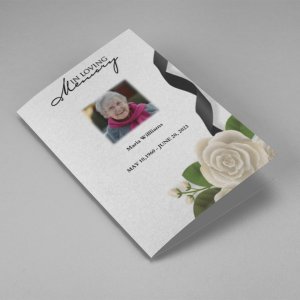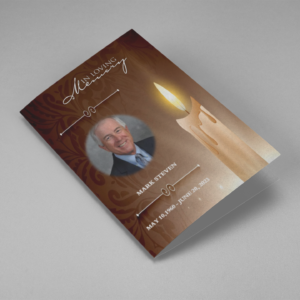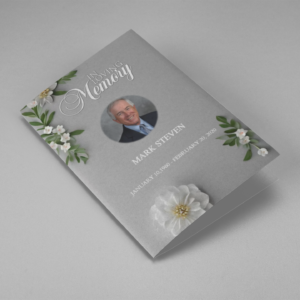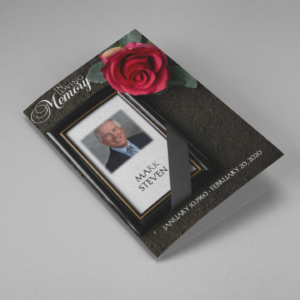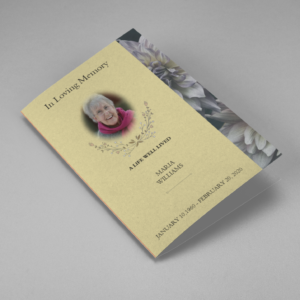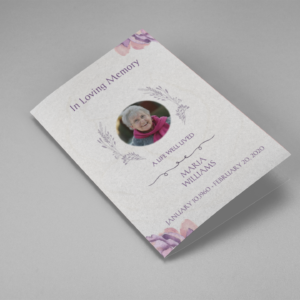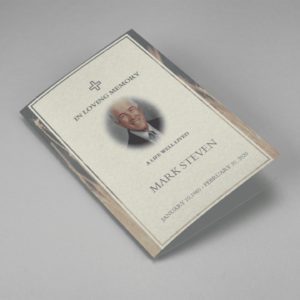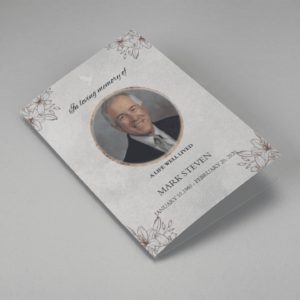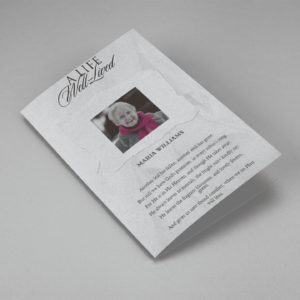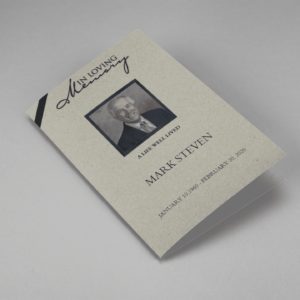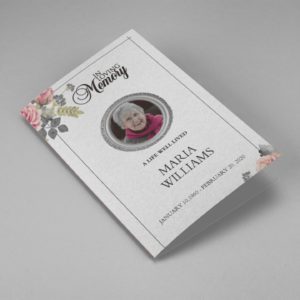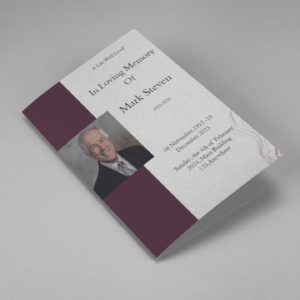Death, for most of people, is a thing that is, at best, something we don’t dwell on often. It’s something that happens to other people, in other places, away from our daily lives. So, whenever it happens around us, we are caught off-guard. As a minister, you can’t allow that to happen.
What would you do if some friend or loved one died and you are requested to do the service? Would you give up that responsibility, just because you’re fearful about having never been the minister for a funeral before and do not know what to say?
Many years ago, I recognized this and I began learning about funeral and memorial services. I contacted funeral homes, where I was told, among other things, that there is usually a definite need for officiants to officiate non-denominational services.
The most difficult parts for me had been combating the potential worry about the way I would feel about being near a corpse, and trying to figure out what I was planning to say at the service. Until the time of my first memorial service, I’d not ever as much as been to a funeral, let alone seen a corpse. I would like to begin by saying a dead body looks a whole lot like a wax dummy. Not even a little scary. It swiftly becomes apparent the spirit has already left and what remains was merely an empty vessel.
As for the words to say, I shortly discovered that there is very little material for funeral ceremonies and virtually nothing available for clergy who desire to conduct them. What pastors need are some sort of script to follow, like at weddings. I did, after much searching, locate 1 ceremony from a mainstream religion and one written by someone from another non-denominational religion. Neither was quite the truth I wanted to share, but it gave me a place to begin. I then wrote a few books which include several pages of choices for the various parts in the service.
I open my services with a welcome message and a thank you on behalf of the family for their attendance. Next, I start to talk about the reason we are gathering – for the celebration of the life of a person they’ve loved. I invite everyone to give a spiritual hello to the newly departed, while I lead everyone in prayer. I share some about living and dying and whatever we’d learned from the deceased in his or her time with us. Then, I transition into the eulogy. I made a general opening for the eulogy, then I fill the eulogy in with the facts and stories I am told by the bereaved before the ceremony
I also usually include some biographical content in the starting of the eulogy, which reminds everyone that the departed one was both a member of a family or group and was also an individual. I usually then talk regarding the importance of reminiscing fondly about the deceased and invite people to stand up and share stories and ask everyone there to say a few words. It’s common to have nobody speak at the service, but sometimes folks will come up if they are invited.
From here, there may be a lot of opportunity for variation. I enjoy singing or leading people in ‘Amazing Grace’ during memorial services. Not everyone is comfortable initiating this, but there still may be space to have a song, either recorded or sung. Just be sure the funeral director is aware if a tape or CD needs to be played. The directors generally already know about this. After the song, there might be a candle-lighting, reading of scripture or reciting of some poetry The service usually concludes with a prayer and a benediction.
If the body is going to be interred (buried), then I follow the family to the burial site (unless I’m already there), and say some words of bible passages, the Lord’s Prayer, plus the words for the interment – (offering the body from whence it came, and so forth.) I do not necessarily do the service in that order; it just depends on whatever feels right at the time. It is very good to show up ready for anything.
I have discovered that funeral services are an outstanding place to help others, find out about myself and other people better, and to heal their grief. The single most important thing to remember whenever you’re doing a ceremony is that it’s essential that you, as the officiant, keep a lid on your own personal feelings. There is going to be a good deal of folks around you sitting in hurt as well as grief. It is not your job to match them. It’s your job to keep yourself a bit distant and show your compassion, while still being strong, so that the bereaved can lean on you as well as feel free to show their own emotions.
REMEMBER that there is no absolute way for officiating a memorial service. The important aspects are to have respect for both the deceased and those grieving, to continue the cultural tradition of the way we say goodbye to our deceased, to pray to the universal consciousness for blessings and peace in this period of sadness and grieving, that reverence of The Supreme Being’s promise of eternal life to people that believe.
It’s imperative during this time, to set people’s minds at rest. The bereaved may be experiencing grief, uncertainty about the fate of their loved one following death, anger, concerns, etc. It is really up to you to identify those emotions and do your best to put them at ease.
Funeral Service Templates
-
Searching for a White Roses And Black Ribbon Funeral Program Template that is easy to print and has a cutting-edge look? White Roses And Black Ribbon Funeral Program Template is the Perfect decision because it measures 8.5”x 11”.
- No Limitation on Content, Edit anything
- Edit anytime – unlimited revisions even after purchased
- Get a printable PDF downloaded to get it printed on your own
-
Searching for a Realistic Burning Candle Funeral Program Template that is easy to print and has a cutting-edge look? Realistic Burning Candle Funeral Program Template is the Perfect decision because it measures 8.5”x 11”.
- No Limitation on Content, Edit anything
- Edit anytime – unlimited revisions even after purchased
- Get a printable PDF downloaded to get it printed on your own
-
Searching for a Bulltongue Arrowhead Funeral Program Template that is easy to print and has a cutting-edge look? Bulltongue Arrowhead Funeral Program Template is the Perfect decision because it measures 8.5”x 11”.
- No Limitation on Content, Edit anything
- Edit anytime – unlimited revisions even after purchased
- Get a printable PDF downloaded to get it printed on your own
-
Searching for a Grey Floral White Tiny Flower Funeral Program Template that is easy to print and has a cutting-edge look? Grey Floral White Tiny Flower Funeral Program Template is the Perfect decision because it measures 8.5”x 11”.
- No Limitation on Content, Edit anything
- Edit anytime – unlimited revisions even after purchased
- Get a printable PDF downloaded to get it printed on your own
-
Searching for a Red Flower Dark Soil Funeral Program Template that is easy to print and has a cutting-edge look? Red Flower Dark Soil Funeral Program Template is the Perfect decision because it measures 8.5”x 11”.
- No Limitation on Content, Edit anything
- Edit anytime – unlimited revisions even after purchased
- Get a printable PDF downloaded to get it printed on your own
-
Searching for a Pink Rose Frame Floral Oval Badge Funeral Program Template that is easy to print and has a cutting-edge look? Pink Rose Frame Floral Oval Badge Funeral Program Template is the Perfect decision because it measures 8.5”x 11”.
- No Limitation on Content, Edit anything
- Edit anytime – unlimited revisions even after purchased
- Get a printable PDF downloaded to get it printed on your own
-
Searching for a Brown and White Classic Funeral Program Template that is easy to print and has a cutting-edge look? Brown and White Classic Funeral Program Template is the Perfect decision because it measures 8.5”x 11”.
- No Limitation on Content, Edit anything
- Edit anytime – unlimited revisions even after purchased
- Get a printable PDF downloaded to get it printed on your own
-
Searching for a Purple Elegant Watercolor Funeral Program Template that is easy to print and has a cutting-edge look? Purple Elegant Watercolor Funeral Program Template is the Perfect decision because it measures 8.5”x 11”.
- No Limitation on Content, Edit anything
- Edit anytime – unlimited revisions even after purchased
- Get a printable PDF downloaded to get it printed on your own
-
Searching for a Cream and Green Photo Obituary Program that is easy to print and has a cutting-edge look? Cream and Green Photo Obituary Program is the Perfect decision because it measures 8.5”x 11”.
- No Limitation on Content, Edit anything
- Edit anytime – unlimited revisions even after purchased
- Get a printable PDF downloaded to get it printed on your own
-
Searching for a Cream Simple Elegant Photo Church Program that is easy to print and has a cutting-edge look? Cream Simple Elegant Photo Church Program is the Perfect decision because it measures 8.5”x 11”.
- No Limitation on Content, Edit anything
- Edit anytime – unlimited revisions even after purchased
- Get a printable PDF downloaded to get it printed on your own
-
Searching for a Grey Classic Minimalist Funeral Program Template that is easy to print and has a cutting-edge look? Grey Classic Minimalist Funeral Program Template is the Perfect decision because it measures 8.5”x 11”.
- No Limitation on Content, Edit anything
- Edit anytime – unlimited revisions even after purchased
- Get a printable PDF downloaded to get it printed on your own
-
Searching for a White Classic Funeral Program Template that is easy to print and has a cutting-edge look? White Classic Funeral Program Template is the Perfect decision because it measures 8.5”x 11”.
- No Limitation on Content, Edit anything
- Edit anytime – unlimited revisions even after purchased
- Get a printable PDF downloaded to get it printed on your own
-
Searching for a Cream Gold Marble Funeral Program Template that is easy to print and has a cutting-edge look? Cream Gold Marble Funeral Program Template is the Perfect decision because it measures 8.5”x 11”.
- No Limitation on Content, Edit anything
- Edit anytime – unlimited revisions even after purchased
- Get a printable PDF downloaded to get it printed on your own
-
Searching for an Elegant Beige Funeral Program Template that is easy to print and has a cutting-edge look? Elegant Beige Funeral Program Template is the Perfect decision because is has a measure of 8.5”x 11”.
- No Limitation on Content, Edit anything
- Edit anytime – unlimited revisions even after purchased
- Get a printable PDF downloaded to get it printed on your own
-
Searching for a White Floral Pro Funeral Program Template that is easy to print and has a cutting-edge look? White Floral Pro Funeral Program Template is the Perfect decision because is has a measure of 8.5”x 11”.
- No Limitation on Content, Edit anything
- Edit anytime – unlimited revisions even after purchased
- Get a printable PDF downloaded to get it printed on your own
-
Searching for a Grey and Burgundy Elegant Funeral Program Template that is easy to print and has a cutting-edge look? Grey and Burgundy Elegant Funeral Program Template is the Perfect decision because is has a measure of 8.5”x 11”.
- No Limitation on Content, Edit anything
- Edit anytime – unlimited revisions even after purchased
- Get a printable PDF downloaded to get it printed on your own
-
Searching for a Creative Watercolor Floral Funeral Program Template that is easy to print and has a cutting-edge look? Creative Watercolor Floral Funeral Program Template is the Perfect decision because is has a measure of 8.5”x 11”.
- No Limitation on Content, Edit anything
- Edit anytime – unlimited revisions even after purchased
- Get a printable PDF downloaded to get it printed on your own
-
Searching for a Soft Green and Grey Minimalist Floral Funeral Program Template that is easy to print and has a cutting-edge look?Soft Green and Grey Minimalist Floral Funeral Program Template is the Perfect decision because is has a measure of 8.5”x 11”.
- No Limitation on Content, Edit anything
- Edit anytime – unlimited revisions even after purchased
- Get a printable PDF downloaded to get it printed on your own
-
Searching for a Green Natural Funeral Program Template that is easy to print and has a cutting-edge look? Green Natural Funeral Program Template is the Perfect decision because is has a measure of 8.5”x 11”.
- No Limitation on Content, Edit anything
- Edit anytime – unlimited revisions even after purchased
- Get a printable PDF downloaded to get it printed on your own


